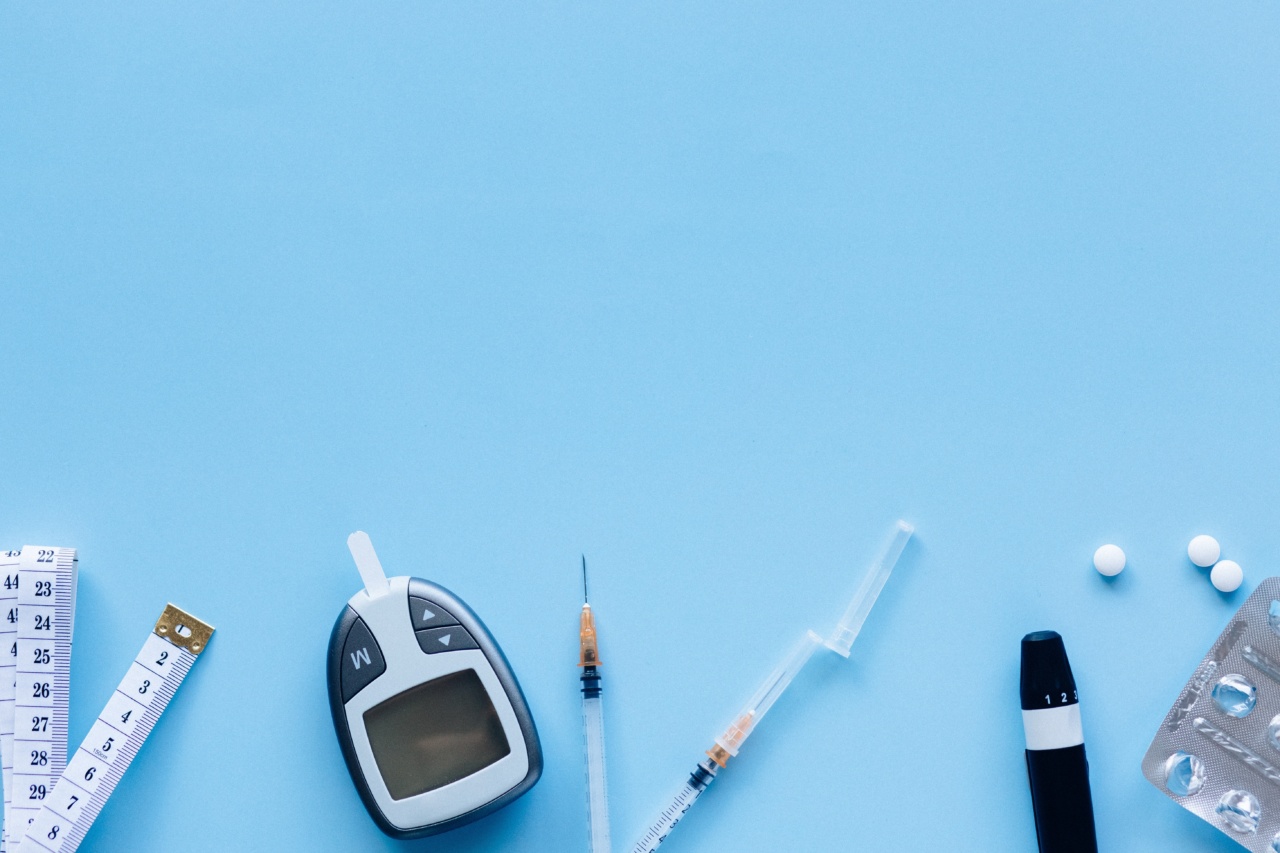Non-insulin dependent diabetes, also known as type 2 diabetes, is a chronic condition that affects the way the body processes blood sugar. This happens when the body becomes resistant to the insulin produced by the pancreas.
Unlike type 1 diabetes, which typically affects children and young adults and requires insulin injections, type 2 diabetes can often be managed with lifestyle changes and medication.
Causes of Non-Insulin Dependent Diabetes
There are several risk factors that increase the likelihood of developing type 2 diabetes. These include:.
Obesity
Carrying excess weight, particularly in the abdominal area, increases the risk of developing type 2 diabetes. This is because fatty tissue releases chemicals that can interfere with the body’s ability to process insulin.
Inactivity
A sedentary lifestyle can increase the risk of developing type 2 diabetes by making it harder for the body to process blood sugar. Regular exercise can help reduce this risk.
Poor Diet
A diet high in processed foods, saturated fat, and refined carbohydrates can increase the risk of developing type 2 diabetes. Eating a balanced diet that is rich in whole foods and low in sugar and processed ingredients can help reduce this risk.
Age
Risk of developing type 2 diabetes increases as we age. This is partly due to a decrease in physical activity and muscle mass, as well as changes in hormone levels.
Symptoms of Non-Insulin Dependent Diabetes
Some common symptoms of non-insulin dependent diabetes include:.
Frequent Urination
As the body attempts to process glucose, excess sugar can be excreted through the kidneys. This can cause frequent urination.
Excessive Thirst
Frequent urination can lead to dehydration, which can cause excessive thirst.
Blurred Vision
If blood sugar levels are elevated for an extended period of time, it can cause changes in vision.
Fatigue
Fluctuations in blood sugar levels can cause feelings of fatigue and weakness.
Diagnosis of Non-Insulin Dependent Diabetes
Non-insulin dependent diabetes is typically diagnosed through a blood test that checks fasting blood sugar levels.
A diagnosis of diabetes is usually made if blood sugar levels are higher than 126 milligrams per deciliter (mg/dL) after an overnight fast.
Treatment of Non-Insulin Dependent Diabetes
The goals of treatment for non-insulin dependent diabetes are to regulate blood sugar levels, reduce the risk of complications, and improve quality of life. Treatment typically involves a combination of lifestyle changes and medication.
Lifestyle Changes
Diet and exercise are two of the most important components of managing non-insulin dependent diabetes. A healthy diet should consist of whole foods, including plenty of fruits, vegetables, lean proteins, and healthy fats.
Exercise can help regulate blood sugar levels and improve insulin sensitivity. Both diet and exercise should be tailored to the needs and preferences of each individual.
Medication
There are several types of medication that can help manage non-insulin dependent diabetes. These include:.
Metformin
Metformin is an oral medication that helps regulate blood sugar levels by reducing the amount of glucose produced by the liver and improving insulin sensitivity.
Sulfonylureas
Sulfonylureas are a type of oral medication that stimulate the pancreas to produce more insulin.
DPP-4 Inhibitors
DPP-4 inhibitors are a type of oral medication that help regulate blood sugar levels by slowing the breakdown of a hormone called GLP-1.
Prevention of Non-Insulin Dependent Diabetes
There are several steps that can be taken to reduce the risk of developing non-insulin dependent diabetes. These include:.
Maintain a Healthy Weight
Carrying excess weight, particularly in the abdominal area, increases the risk of developing type 2 diabetes. Losing weight and maintaining a healthy weight can help reduce this risk.
Exercise Regularly
Regular exercise can help regulate blood sugar levels and improve insulin sensitivity. Aim for at least 30 minutes of moderate-intensity exercise most days of the week.
Eat a Balanced Diet
Eating a balanced diet that is rich in whole foods and low in sugar and processed ingredients can help reduce the risk of developing type 2 diabetes.
Manage Stress
Chronic stress can contribute to the development of type 2 diabetes. Finding ways to manage stress, such as through meditation, yoga, or therapy, can help reduce this risk.
Closing Thoughts
Non-insulin dependent diabetes is a chronic condition that affects the way the body processes blood sugar. It can have serious complications if left untreated, but it can often be managed through a combination of lifestyle changes and medication.
By making healthy choices and working with a healthcare provider, those with non-insulin dependent diabetes can live full and healthy lives.




























